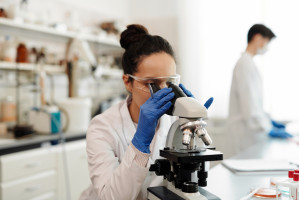
Scientists at the School of Biosciences and Veterinary Medicine at the University of Camerino (Italy) and CureLab Oncology (Boston) have uncovered the indirect therapeutic potential of Elenagen, a circular DNA encoding the p62/SQSTM1 protein.
This discovery offers a new understanding of Elenagen’s recently reported anti-cancer effects and opens exciting possibilities for developing novel therapies for age- and inflammation-related diseases.
The two institutions have formed a strategic partnership to further investigate and harness this promising therapeutic avenue.
Elenagen’s Unexpected Impact: Rejuvenating Cells Without Direct Contact
Elenagen was initially investigated by CureLab’s founder, Dr. Alexander Shneider, as a therapeutic anti-cancer DNA vaccine designed to elicit an adaptive immune response against a prominent cancer-associated antigen found in high amounts exclusively in cancer cells.
This targeted approach aimed to spare normal cells where the antigen is not abundantly present.
However, collaborative research between University of Camerino and CureLab Oncology, published in the Journal of Cellular Physiology, revealed a surprising additional mechanism: Elenagen may indirectly modulate mesenchymal stem cells (MSCs) — master cells crucial for tissue repair and immune regulation — thus offering a broader therapeutic potential than initially anticipated.
In their study, the team demonstrated that Elenagen can enhance the ability of MSCs to produce trophic and anti-inflammatory biofactors.
Remarkably, this effect occurs even without direct exposure of MSCs to Elenagen. Instead, Elenagen triggers certain cells to secrete signalling molecules that can travel long distances and act upon distant stem cells, mirroring the effects of direct Elenagen treatment.
For example, bone marrow MSCs from young mice typically differentiate into bone-forming osteoblasts. However, MSCs from older mice or those with removed ovaries tend to produce adipocytes (fat cells). Treating these “aged” MSCs with Elenagen directly restores their capacity to generate osteoblasts instead of adipocytes.
Challenging the Traditional Drug Development Model
“If life were simple, Elenagen would have a single, well-defined target, and its mechanism of action would be straightforward,” said Dr. Alex Shneider, founder of CureLab Oncology. “VCs, granting agencies, and journal reviewers often favor this simplicity. However, our research reveals a different reality. Elenagen appears to act indirectly, in a more systemic manner, opening up therapeutic possibilities that extend far beyond the traditional target-drug interaction model.”
From Cancer to a Broader Therapeutic Horizon
This discovery of a novel mechanism not only opens new avenues for ongoing clinical studies of Elenagen as an anti-cancer agent but also extends its potential applications to a wide range of age- and inflammation-related diseases. To fully explore this promising therapeutic avenue, Camerino University and CureLab Oncology have forged a strategic partnership, uniting the expertise of both Italian and American research teams.
Serendipity and Collaboration Drive Scientific Innovation
“Our recent findings, published in the Journal of Cellular Physiology, reveal the remarkable ability of Elenagen to modulate mesenchymal stem cells through an indirect mechanism,” said Professor Maria Giovanna Sabbieti, a lead researcher at the University of Camerino. “This discovery opens up exciting possibilities for new therapies targeting age- and inflammation-related diseases.”
“Our collaboration with CureLab Oncology exemplifies the power of international collaboration in advancing innovative research,” said co-investigator Dr. Dimitrios Agas.
Source: Universita degli Studi di Camerino Scuola di Bioscienze e Medicina Veterinaria